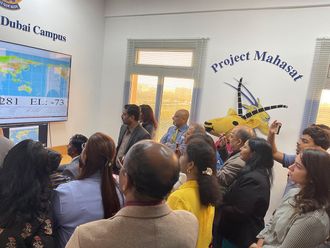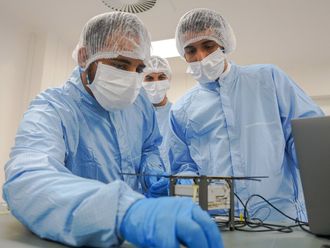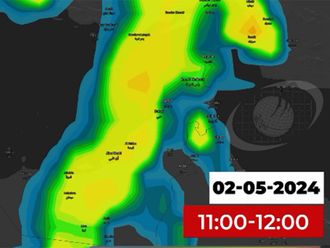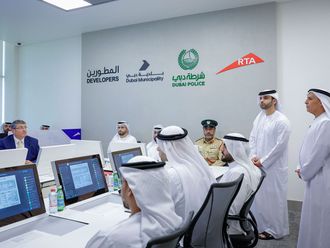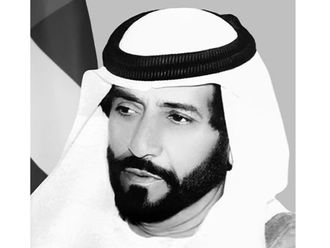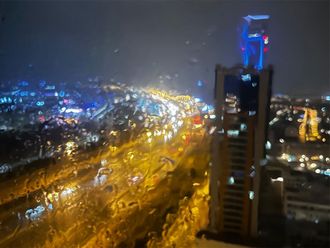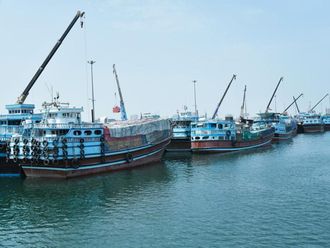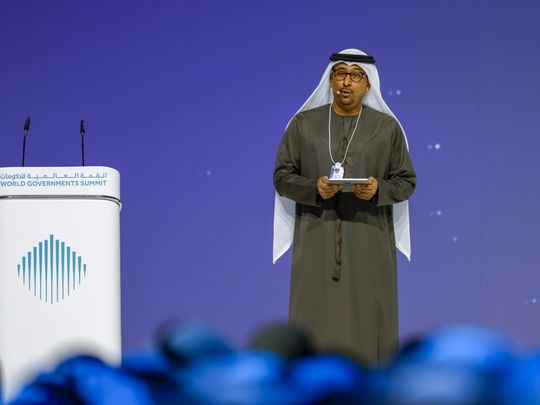
Dubai: Dubai plans on bolstering the use of artificial intelligence (AI) for various aspects of municipal work, Director General of Dubai Municipality Dawoud Al Hajri said at the World Government Summit on Wednesday.
Al Hajri elaborated on Dubai Municipality’s strategy for leveraging AI solutions and incorporating them into various aspects of municipal work, including waste management and sewage plant treatment.
He said, “Governments constantly must deal with high resident expectations and work hard to meet these rapidly changing demands. Considering this, Dubai Municipality has adopted a proactive stance by using artificial intelligence technologies for urban planning, such as (Urbanist AI).”
According to the DM Chief, these tools assist planners in generating solutions tailored to urban environments, facilitating accurate changes and advancements and significantly saving time and costs.
Read More
- WGS 2024: UAE and Turkish Presidents discuss enhancing bilateral relations
- WGS 2024: OpenAI CEO Sam Altman proposes global oversight agency for AI, points to UAE for leadership in talks
- WGS 2024: Cost of solar energy in DEWA’s projects drops massively, says Saeed Al Tayer
- WGS 2024: 5 projects win $1 million Dubai International Best Practices Award for Sustainable Development
On Tuesday, Dubai Municipality also signed a cooperation agreement with the United Nations Human Settlements Programme (UN-Habitat) to support and enhance the ‘Artificial Intelligence in Dubai’. The agreement will be followed by the development of a comprehensive proposal for the project ‘Artificial Intelligence in Dubai: Pioneering Urban Intelligence for a Comprehensive and Sustainable Future’.
This project aims to improve collaboration across several areas of work, including the creation of an AI governance strategy for Dubai’s urban planning and the implementation of AI-driven simulation tools to improve priority areas and optimise urban planning operations and services.
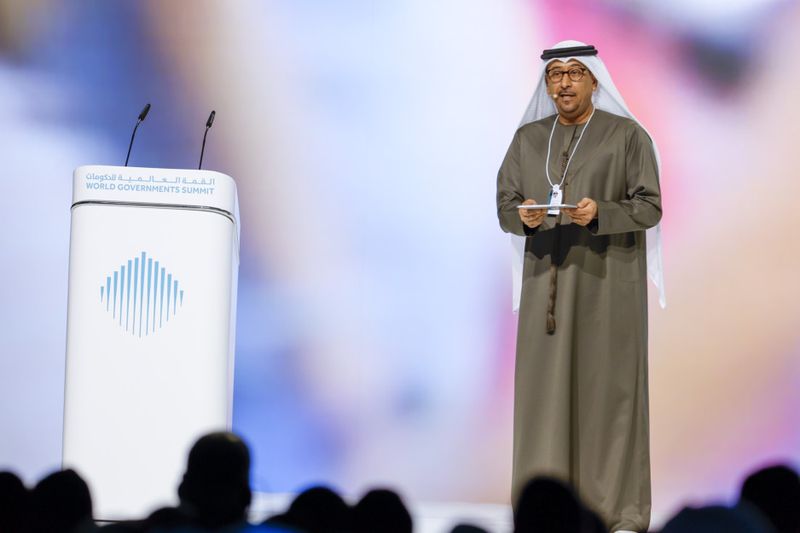
Waste management — an economic opportunity
Al Hajri said while waste management remains a challenge for cities worldwide, Dubai Municipality views it as a significant economic opportunity.
“Using the biggest waste treatment and energy conversion facility on the planet, we have leveraged waste to help light 135,000 residential buildings across the Emirate of Dubai. This facility uses cutting-edge technologies, such as artificial intelligence systems, that further boost operational efficiency,” explained Al Hajri.
Sewage plants treat more than 360 million cubic metres of wastewater each year. Al Hajri highlighted the efforts being made by the Dubai Municipality to take advantage of this resource to launch its innovative ‘Green Dubai’ programme.
“With the help of recycled water from the Dubai Municipality nursery, the municipality has successfully planted over 700,000 trees in the last five years. This AI-enabled nursery also allows for producing 90 million seedlings per year,” he said.
Axes of cities of opportunity
During his keynote speech, Al Hajri also reviewed the critical axes of Cities of Opportunity and how they serve as the foundation for shaping future cities.
Al Hajri discussed the five-pillar framework for Cities of Opportunity: knowledge economy and technology, culture and society, environment, planning and accessibility, and infrastructure. “These pillars serve as the main axes and foundations for cities to recognise possibilities and accelerate their progress,” he said.



